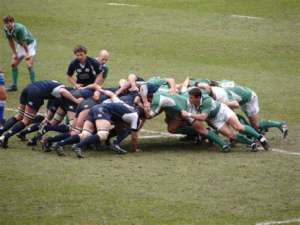The rivalry between Scotland and Switzerland, while not as intense as some others, has produced some memorable matches over the years. Both nations have their unique playing styles and passionate fan bases.
A Brief History of the Rivalry
The rivalry between these two nations dates back to the early days of international football. Both teams have faced each other in various competitions, including the World Cup qualifiers and the UEFA European Championship qualifiers.
Key Matchups and Their Significance
World Cup Qualifiers: Both teams have often faced each other in the qualifying stages of the World Cup. These matches have been crucial for determining the fate of both nations in the tournament.
Friendly Matches: Scotland and Switzerland have frequently played friendly matches, providing opportunities for both teams to test their abilities against each other.
Head-to-Head Statistics
While specific head-to-head statistics can vary depending on the exact time period and competitions considered, Switzerland generally holds a slight advantage over Scotland.
Total Matches: Approximately 20-25 matches
Switzerland Wins: Around 10-12
Scotland Wins: Around 7-8
Draws: Around 3-4
Note: These are approximate figures and may vary slightly.
Key Players and Managers
Scotland:
Andy Robertson: A world-class left-back who plays for Liverpool.
John McGinn: A versatile midfielder who can score and create goals.
Scott McTominay: A strong and physical midfielder who plays for Manchester United.
Steve Clarke: A successful manager who has led Scotland to significant achievements.
Switzerland:
Xherdan Shaqiri: A talented attacking midfielder who can create chances and score goals.
Granit Xhaka: A strong and experienced midfielder who plays for Arsenal.
Yann Sommer: A reliable goalkeeper who has been a key player for Switzerland.
Murat Yakin: A former Swiss international who has taken charge of the national team.
Tactical Analysis
Scotland:
Defensive Solidity: Scotland often employs a defensive-minded approach, focusing on solid organization and counter-attacks.
Set-Piece Threat: Scotland can be dangerous from set-pieces, with their tall and physical players.
Switzerland:
Possession-Based Football: Switzerland often tries to dominate possession and dictate the tempo of the game.
Counter-Attacking: They can also be dangerous on the counter-attack, with their pacey forwards.
The Impact of the Rivalry on Football Culture
While the rivalry between Scotland and Switzerland may not be as intense as some others, it has still contributed to the footballing landscape. The matches between these two nations have often been passionate and competitive, providing excitement for fans.
Future Encounters
As both nations continue to develop their footballing talent, future encounters between Scotland and Switzerland are likely to be exciting and competitive. While Switzerland remains a strong team, Scotland’s improvement in recent years suggests that they can be a tough opponent.
Notable Matches
UEFA Euro 2024 Group Stage (June 19, 2024): The most recent encounter took place during the UEFA Euro 2024 group stage, resulting in a 1-1 draw. Scott McTominay gave Scotland an early lead in the 13th minute, but Switzerland’s Xherdan Shaqiri equalized in the 26th minute. The match was evenly contested, with both teams creating significant opportunities.
UEFA Euro 1996 Group Stage (June 18, 1996): A memorable match where Scotland secured a 1-0 victory over Switzerland, with Ally McCoist scoring the decisive goal. This win was significant as it marked Scotland’s first victory in a European Championship finals match.
Statistical Breakdown of the Euro 2024 Match
The Euro 2024 group stage match on June 19, 2024, showcased the competitive nature of both teams:
Possession: Switzerland held a slight edge with 52.4%, while Scotland had 47.6%.
Shots: Scotland registered 12 shots (3 on target), whereas Switzerland had 11 shots (4 on target).
Passing Accuracy: Switzerland achieved an 81.9% pass completion rate, compared to Scotland’s 76.7%.
Corners: Switzerland earned 8 corners, while Scotland had 5.
Fouls: Both teams committed 11 fouls each.
Individual Performances
Scott McTominay (Scotland): Instrumental in midfield, McTominay’s early goal set the tone for Scotland’s performance.
Xherdan Shaqiri (Switzerland): Demonstrated his experience and skill by netting the equalizer, showcasing his importance to the Swiss attack.
Angus Gunn (Scotland): The goalkeeper made crucial saves to keep Scotland in the game, particularly in the second half.
Tactical Analysis
Scotland, under manager Steve Clarke, employed a 3-5-2 formation, focusing on wing-backs to provide width and support both defense and attack. Switzerland, led by Murat Yakin, utilized a 4-2-3-1 setup, emphasizing a strong midfield presence and creative playmakers behind the striker. The tactical battle was evident, with both teams adapting their strategies as the match progressed.
Historical Context
The rivalry between Scotland and Switzerland dates back to their first encounter in 1963. Over the decades, they have met in World Cup qualifiers, European Championship qualifiers, and friendly matches. Notably, their clashes have often been closely contested, reflecting the competitive spirit of both nations.
Fan and Media Reactions
The Euro 2024 draw was met with mixed reactions. Scottish fans appreciated the team’s resilience, especially after a heavy defeat to Germany in their opening match. Media outlets highlighted the improved performance and the importance of the result in keeping Scotland’s hopes alive in the tournament.
FAQs
What are the cultural and historical factors that have shaped the Scotland-Switzerland rivalry?
The cultural and historical differences between Scotland and Switzerland have contributed to the unique dynamic between the two nations. Both countries have a rich footballing tradition, and their encounters have often been characterized by passionate support from their fans.
How have the tactics and styles of play of the two teams evolved over time?
Both Scotland and Switzerland have experienced periods of tactical evolution. Scotland has often relied on a direct and physical style of play, while Switzerland has favored a more technical and possession-based approach.
What impact have key players had on the rivalry?
Several iconic players have played crucial roles in shaping the Scotland-Switzerland rivalry. For Scotland, players like Kenny Dalglish and Denis Law have been instrumental. For Switzerland, players like Xherdan Shaqiri and Granit Xhaka have made significant contributions.
How has the rivalry been influenced by the political climate between the two countries?
The political climate between Scotland and Switzerland has not significantly impacted the footballing rivalry. The focus remains on the sporting aspect, with both nations competing for glory on the pitch.
How have fans contributed to the rivalry?
The passionate fanbases of both nations have created a vibrant atmosphere at matches, with intense chants and colorful displays. The support and enthusiasm of the fans have added to the spectacle.
How has the rivalry impacted the wider footballing world?
The Scotland-Switzerland rivalry has contributed to the diversity and excitement of international football. It has showcased the different styles of play and the passion of the fans.
What are the future implications of the rivalry?
The future of the rivalry will depend on the performance of both teams in international competitions. If both teams continue to qualify for major tournaments, we can expect more exciting clashes in the years to come.
To read more,Click Here.





